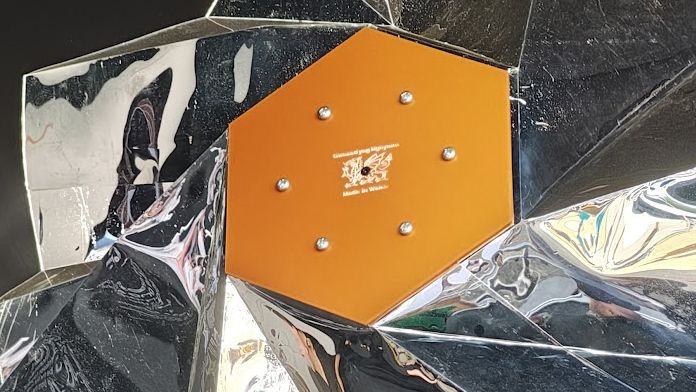The Rise of a Welsh Startup in Space Manufacturing
At the Goodwood Festival of Speed Future Lab, a quiet corner was occupied by a Welsh startup named Space Forge. While most visitors were drawn to the lifelike humanoid robot AMECA, presented by Engineering Arts in partnership with the National Robotarium, Space Forge’s presence was equally significant. The company’s work represents the essence of what Goodwood stands for: technology in motion, and it is undeniably exciting.
The Science Behind Semiconductor Production
Every chip found in electronic devices, including robots, contains a metalloid, typically silicon. Silicon chips are made from wafers that are sliced from a silicon ingot using diamond blades. This ingot is created from a seed, and the purity of this seed determines the quality of the wafer. Joshua Western, CEO and co-founder of Space Forge, refers to these ultra-high-quality semiconductor substrates as a key area of expertise. An anonymous observer noted that this could attract attention from the military due to its potential applications.
In May 2025, the NATO Innovation Fund led a funding round that included World Fund, Business Business Bank, and NSSIF, injecting around $30 million into the company. For now, the only public customer and investor acknowledged by Space Forge is BT. According to the company, space-made amplifiers can reduce cell tower energy consumption by more than half.
Environmental Impact and Potential
If scaled up over the next decade, this innovation could save about 4.3 million tons of CO2 by 2035, equivalent to the emissions of one million ICE cars. Producing materials in space offers numerous opportunities but also presents significant challenges, such as dealing with space radiation.
Space as a Manufacturing Powerhouse
In low Earth orbit, the conditions—such as a near-perfect vacuum, microgravity, and near absolute zero temperatures—make it easier to produce seeds that are ten times purer than those on Earth. Space Forge claims this will lead to semiconductor materials with one-hundredth the defects of their Earthly counterparts. This results in a virtuous cycle: fewer defects mean lower costs, higher efficiency, and better performance.
Beyond improving existing materials, space manufacturing allows for the creation of new alloys and superalloys, as well as non-metals like ceramics, leading to novel composites and compounds. The pharmaceutical industry could benefit greatly, with improved drug shelf life and delivery methods. Even the food industry might see breakthroughs, such as in-spatium meat production.
A Unique Position in the Market
Space Forge has only three rivals worldwide because making semiconductors in space is extremely challenging. In June 2025, the company successfully launched ForgeStar 1, its in-space manufacturing plant. Western mentioned that while the current production rate is in the hundreds of grams, economies of scale and competition among private space companies like SpaceX and Blue Origin could reduce launch costs.
The Future of Space Manufacturing
ForgeStar is designed to be reusable and sustainable, though not mass-scalable. Western emphasized that the company aims to be a platform for others to use, a concept he calls “Microgravity-as-a-service.” This business model is similar to Arm’s licensing approach, where partners can use the platform to produce various materials, from kombucha to seeds and sourdough starters.
By allowing others to work on its platform, Space Forge can generate sustained revenue and increase its market share ahead of potential competitors. Western noted that the company is involved in only four of the hundreds of processes needed to produce a chip. There is also the possibility that major foundries like TSMC or Samsung Foundry might take an interest in Space Forge’s ultra-pure ingots.
Challenges and Outlook
When asked about the biggest challenge, Western admitted that red tape remains a significant hurdle, a common issue for many startups. Despite the competition, Space Forge continues to push the boundaries of what is possible in space manufacturing, setting the stage for a future where space is not just a frontier for exploration but also a hub for advanced production.
